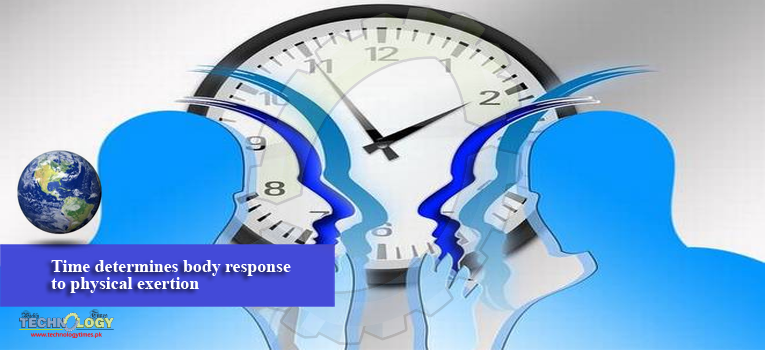“It’s quite well known that almost every aspect of our physiology and metabolism is dictated by the time ‘circadian clock‘,” says Gad Asher of the Weizmann Institute of Science, a senior author of one of the studies.

“This is true not only in humans but in every organism that is sensitive to light. We decided to ask whether there is a connection between the time of day and exercise performance.”
“Circadian rhythms dominate everything we do,” adds Paolo Sassone-Corsi of the Center for Epigenetics and Metabolism at the University of California, Irvine, who is senior author of the other paper.
“Previous studies from our lab have suggested that at least 50% of our metabolism is circadian, and 50% of the metabolites in our body oscillate based on the circadian cycle. It makes sense that exercise would be one of the things that’s impacted.”
Both research teams looked at the association between time of day and exercise performance primarily in mice. Because mice are nocturnal, one thing they had to do was translate mouse timing to human timing, by distinguishing between the active phase and resting phase of the mice rather than using numbers on the clock.
ZMP is known to activate metabolic pathways that are related to glycolysis and fatty acid oxidation through activation of AMPK, which is a master cellular metabolic regulator. Therefore, it is likely to contribute to the increased exercise capacity in the evening.
“Interestingly, ZMP is an endogenous analog of AICAR [aminoimidazole carboxamide riboside], a compound that some athletes use for doping,” Asher says.
The researchers also studied 12 humans and found similar effects. Overall, the people in the study had lower oxygen consumption while exercising in the evening compared with the morning; this translated to better exercise efficiency.
Based on the work from the UC Irvine team, exercise seemed to have the most beneficial impact on the metabolism at the beginning of the active phase phase (equivalent to late morning in humans) compared with the resting phase (evening).
The researchers note that even though circadian clocks have been conserved throughout evolution, translating the findings to humans is not so straightforward.
One reason is that humans have more variation in their chronotypes than mice living in a lab. “You may be a morning person, or you may be a night person, and those things have to be taken into account,” Sassone-Corsi says.